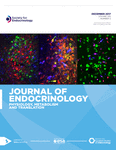Non-classic thyroid hormone signalling involved in hepatic lipid metabolism
- Biophysics Institute Carlos Chagas Filho, Federal University of Rio de Janeiro, Centro de Ciências da Saúde, Avenida Carlos Chagas Filho, 373, Bloco G, Cidade Universitária - Ilha do Fundão, Rio de Janeiro - RJ 21941-902, Brazil
- Correspondence should be addressed to A Cordeiro; Email: alinecordeiro{at}biof.ufrj.br
Abstract
Thyroid hormones are important modulators of lipid metabolism because the liver is a primary hormonal target. The hypolipidaemic effects of thyroid hormones result from the balance between direct and indirect actions resulting in stimulation of lipid synthesis and lipid oxidation, which favours degradation pathways. Originally, it was believed that thyroid hormone activity was only transduced by alteration of gene transcription mediated by the nuclear receptor thyroid hormone receptors, comprising the classic action of thyroid hormone. However, the discovery of other effects independent of this classic mechanism characterised a new model of thyroid hormone action, the non-classic mechanism that involves other signalling pathways. To date, this mechanism and its relevance have been intensively described. Considering the increasing evidence for non-classic signalling of thyroid hormones and the major influence of these hormones in the regulation of lipid metabolism, we reviewed the role of thyroid hormone in cytosolic signalling cascades, focusing on the regulation of second messengers, and the activity of effector proteins and the implication of these mechanisms on the control of hepatic lipid metabolism.
- Received in final form 30 November 2012
- Accepted 7 January 2013
- Made available online as an Accepted Preprint 7 January 2013
- © 2013 Society for Endocrinology











